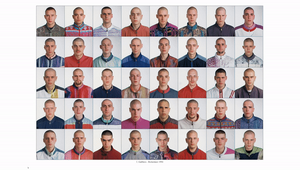
Guusje Van Deuren on the Truths of the Human Condition
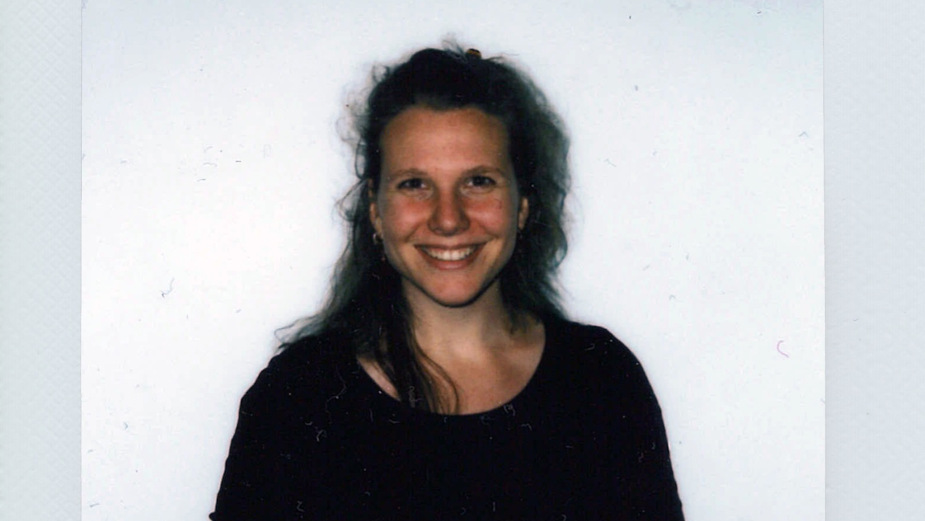
Earlier in September, Guusje van Deuren joined HALAL as their new head of scripted. A founder of production house The Rogues, Guusje’s new role is expected to head the scripted film and TV side of HALAL. Known for globally acclaimed films, such as ‘De Libi’ (Golden Calf for screenplay winner) and ‘I Don’t Wanna Dance’, Guusje will be overseeing the development and production of fiction films and series - expanding the existing scripted team.
Guusje says that her and Gijs Kerbosch, ‘the original HALAL papa, producer and director’, have, in fact, been talking for years - about their own work, about the industry, and most prominently about inspiration. With a subtle, underwriting knowledge that they would eventually collide and work together, both Guusje and Gijs were just waiting for the right moment. Guusje says that when he offered her the role as head of scripted (so Gijs could focus better on the international opportunities coming HALAL’s way), “it finally felt like the right fit, and the exact right time.” But, more on that later.
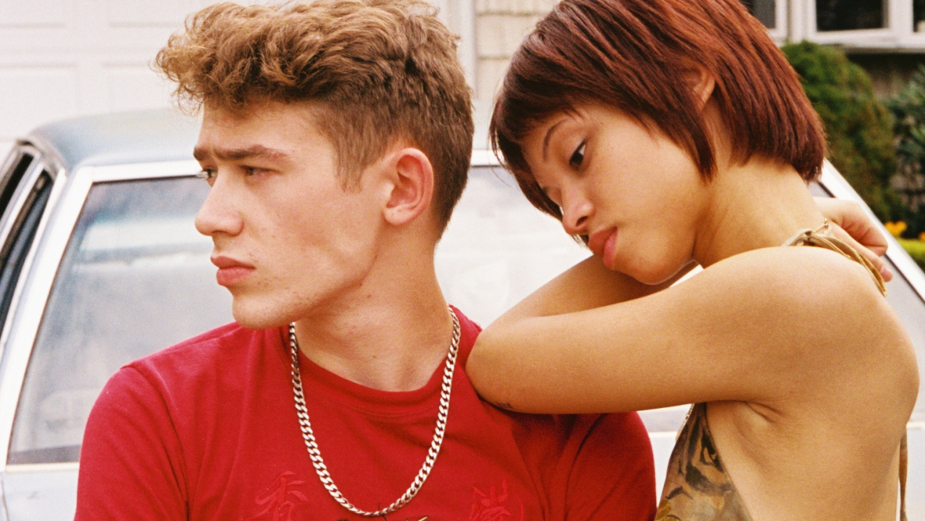
(Still from 'Stranger’s Arms', a film by Emma Westenberg)
To take it back a bit, Guusje was raised in a musical family, with both of her parents being classical musicians who not only valued performing, but were also “big on musical education and community.” That meant that as part of this dedication, her father and Guusje started making musical theatre together during her teenage years. Eventually however, Guusje decided not to pursue a musical career, which left her feeling somewhat lost. “That was until I discovered filmmaking, and how it tapped into things I had been developing all my life,” she says. “The complex and refined art of storytelling - making emotional impact and not being afraid of taking that seriously, and the habit of approaching your art as a craft first - it was all very natural from there.”
Guusje began her studies at the Dutch Film Academy, but only really started to learn about script development later, when she found the time to focus on it and learn “both from others and by actually doing it.” During that time, she points to her collaborations with Jeroen Scholten van Aschat, Shady El-Hamus and Flynn von Kleist as instrumental for her development. “Their ambition and talent, combined with their faith in me as their partner in crime really boosted my conviction to move more and more into the field,” says Guusje. “They are still great inspirations, critics and cheerleaders for my work, and I feel privileged to have met them so early in my career.”
After graduation from the Film Academy, Guusje almost instantly landed a job as junior producer at Lemming Film. “Looking back on my time at Lemming, I realise I was still really young - in my early twenties. What I consciously learned during that first year was that I could, in fact, write, that I understood how to tell a story, and that I was able to convince others that our stories mattered.” She also later discovered that her time at Lemming taught her that producers are “basically entrepreneurs”. “At first, this felt somewhat limiting to me - like running a company would get in the way of the reason why I had started making films,” Guusje adds, “At Lemming Film (and later at other companies such as New Ams), I saw how being an ambitious, internationally focused entrepreneur can have a great and valuable impact on your films, and also be a way to reach audiences.” Although now this information comes as evident to her, for the 22-year-old Guusje, it most definitely wasn’t obvious. “I still sometimes struggle to get my head out of the stories and into the real world, so for me it was very valuable to be around ambitious entrepreneurs like Leontine Petit, Gijs Kerbosch, Sander Verdonk, and others.”
After her initial job at Lemming, she went on to work as a junior creative producer for a number of other companies, and a major lesson that she took from that time in her career was that “running a production company is, in a sense, a deeply personal thing.” In that, she understood that to do so, you need to be acutely aware of both your strengths and weaknesses, as well as visions and unique qualities. “Now, eleven years in, I think I am more aware of what I should focus on, and of the things that will always continue to be blind spots and with which I need help and guidance,” she says. “I know what kind of work fits my slate and what doesn’t. And I know and appreciate that every production company has its own style, identity, and method, and we are lucky to have a very diverse group of competitors.”
Looking at her most notable work, Guusje explains that ‘I Don’t Wanna Dance’, in which an aspiring young dancer is torn between his destructive relationship with his mother and his own happiness, is extremely dear to her heart. Starting as a documentary that she made with her husband Flynn von Kleist, the project researched young children who had a special relationship with music. “Yfendo stood out immediately,” Guusje adds. “Flynn and him bonded over many things, but mostly over Yfendo’s tumultuous relationship with his mother. As we were finishing the documentary, Flynn indicated that he wasn’t done with Yfendo’s story, and he wanted to make a feature about his life.” Following that, the duo asked Yfendo and his mother if they wanted to collaborate. “What followed was two very intense years, in which Jeroen Scholten van Aschat, Flynn and I tried to write a scenario about a real life unfolding in front of us. Every time the story got ahead of reality, reality would take a turn we couldn’t have imagined.”
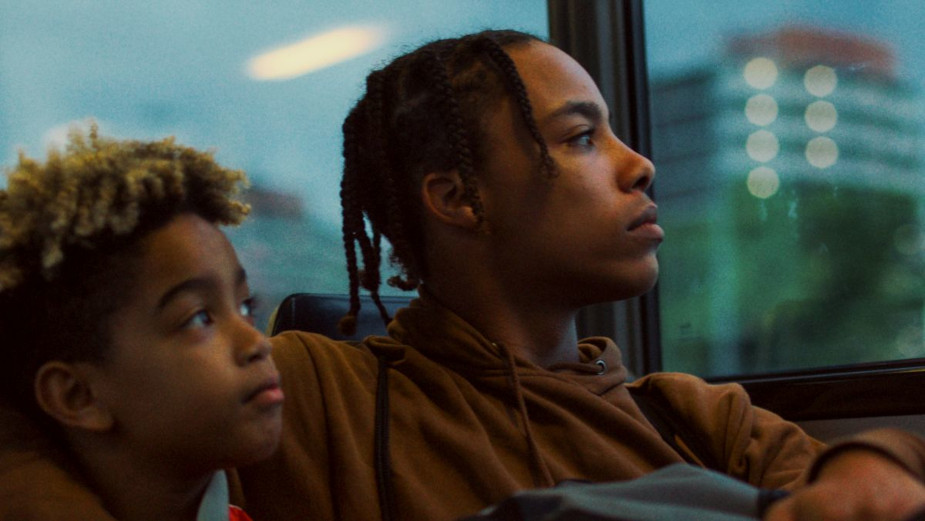
(Still from 'I Don’t Wanna Dance')
In the process, Guusje and her team grew closer to Yfendo and his mother. At that time, Guusje and Flynn had a baby, and Yfendo started high school while subsequently losing his family home. Shortly after, they lost Yfendo for a while, but when he finally found his way back to them, he moved into their house and they completed the film together. Guusje says, “The day we showed it to his family, I felt such an overwhelming pride radiating from everyone in the cinema. Pride of Yfendo, and of us as an unlikely group of people who together had succeeded in doing the seemingly impossible - telling life as it was for Yfendo and his family. Although it was a tough and risky process, and Yfendo’s family is still fighting many demons as we speak, when I think about the film I feel deep love and victory that I know we all share.”
On the other hand, ‘De Libi’, which won a Golden Calf for best screenplay, feels to Guusje like a ‘summer breeze’. Although she started off with the expectation of it being a challenging project, when Guusje started making it with Jeroen and Shady, it immediately felt right. “It just puts a smile on my face. Somehow we, the project, had wings. Looking back, it taught me that we were right to focus on the things we knew were essential. We understood that the essence of the film was joy, youth, banter, bravado, and why we wanted to communicate that essence,” she says. Another aspect of which she’s proud is that the ‘impossible budget’ of only €600.000 never got in the way of the team communicating that essence exactly how it needed to be communicated. “We were right to trust our instincts and each other, and if we continue to do that and work hard, we can do great things,” says Guusje.
Looking at projects - both difficult ones and those that fly on their own - a challenge that has been prominent in Guusje’s career is that every day, she has to “fight the certainty that you know absolutely nothing about creating stories.” Even though she is mostly involved in creating the stories and not the actual writing, she finds the work alone to be a daunting task. “In this, I feel like my musical training comes in handy too - as both in film and in music you are never done learning,” she says. “You have to practise, look at the great work other have made, and most of all, accept that your feeling of incompetence might be your greatest ally.”
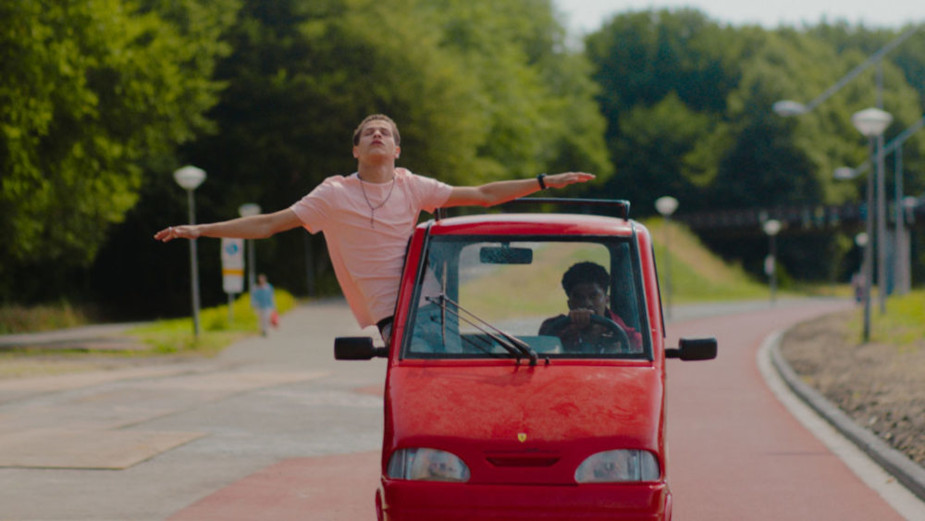
(Still from 'De Libi')
Today, after many twists and turns, battles with knowledge or the lack thereof, and inspiring experiences, Guusje has found her place in HALAL. This, to her, allows her to do a few things. “Firstly, after working mostly on my own for years, I am now joining a bigger, energetic team of people with very diverse expertise,” she says. “For the past year, this has become a goal of mine, because my projects need more room to grow and meet the ambitions the writers/directors and I have.” Secondly, because of the great team Guusje has at her back, she gets to focus on work that she feels is most important and dear to her - which is script development in itself. “Every producer struggles in their own way to be able to nurture their projects and keep searching for new ways to grow their own expertise, while at the same time run a company and produce films. I know I do. I’m really lucky to join such a talented team that can really shelter me from a lot of things while I work on the development of new projects.”
And last but not least, Guusje is excited about HALAL’s great slate. “I am very happy I have been able to bring beautiful projects by directors such as Sjoerd Oostrik, Flynn von Kleist and Jamille van Wijngaarden to HALAL to develop them further and let them grow into the international features they need to become,” she says. “We now have a slate of projects that range from a mainstream Christmas film to an experimental film on squatting, to Emma Westenberg’s colourful, eclectic second feature and an international documentary set in the deltas of Peru. It is really all I could wish for!”
Although Guusje dislikes speaking about work in general terms, she agrees that there are certain qualities she looks for in a project, such as stories that are deeply universal and not afraid to sincerely express a truth about the human condition. “Finding that truth - be it light or dark in nature - and expressing it in such a way that it resonates with audiences across borders is a huge challenge and an ambition that fuels everything I do.” This is why Guusje is much more inclined to tell stories that emphasise the similarities between humans, over stories promoting a more “proprietary approach.” She finds classically structured stories are most successful in allowing her to achieve her ambitions, and she tries to “find originality in cinematic approach, arena, perspective.” Her vision for HALAL and her approach is not entirely experimental (although she did produce a “cinematic opera with remote-controlled cars as protagonists”), and her goal is to achieve great dramatic storytelling with compelling cinematic work, that resonates with the simple (yet very complicated) truths we find out everyday about ourselves.










